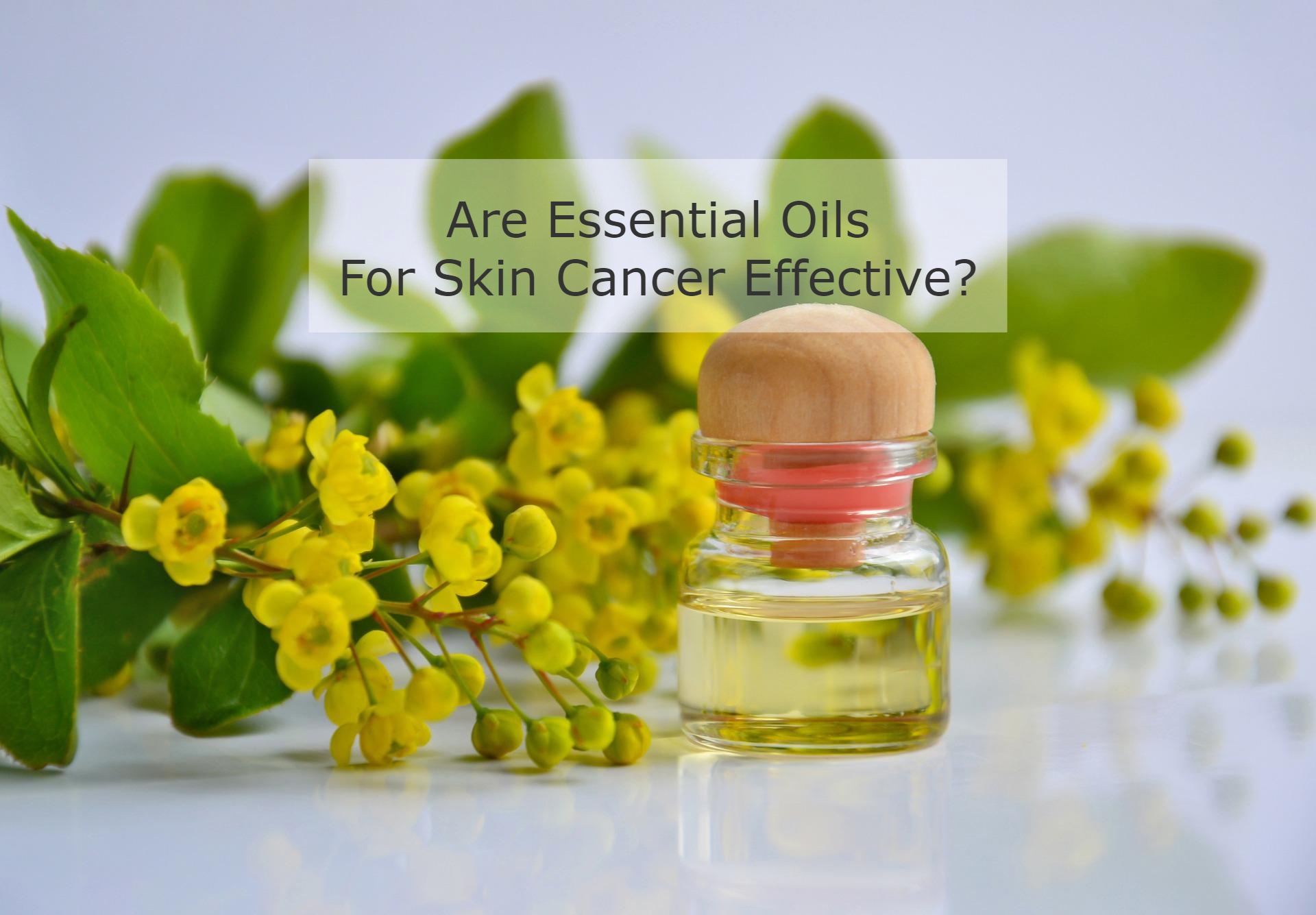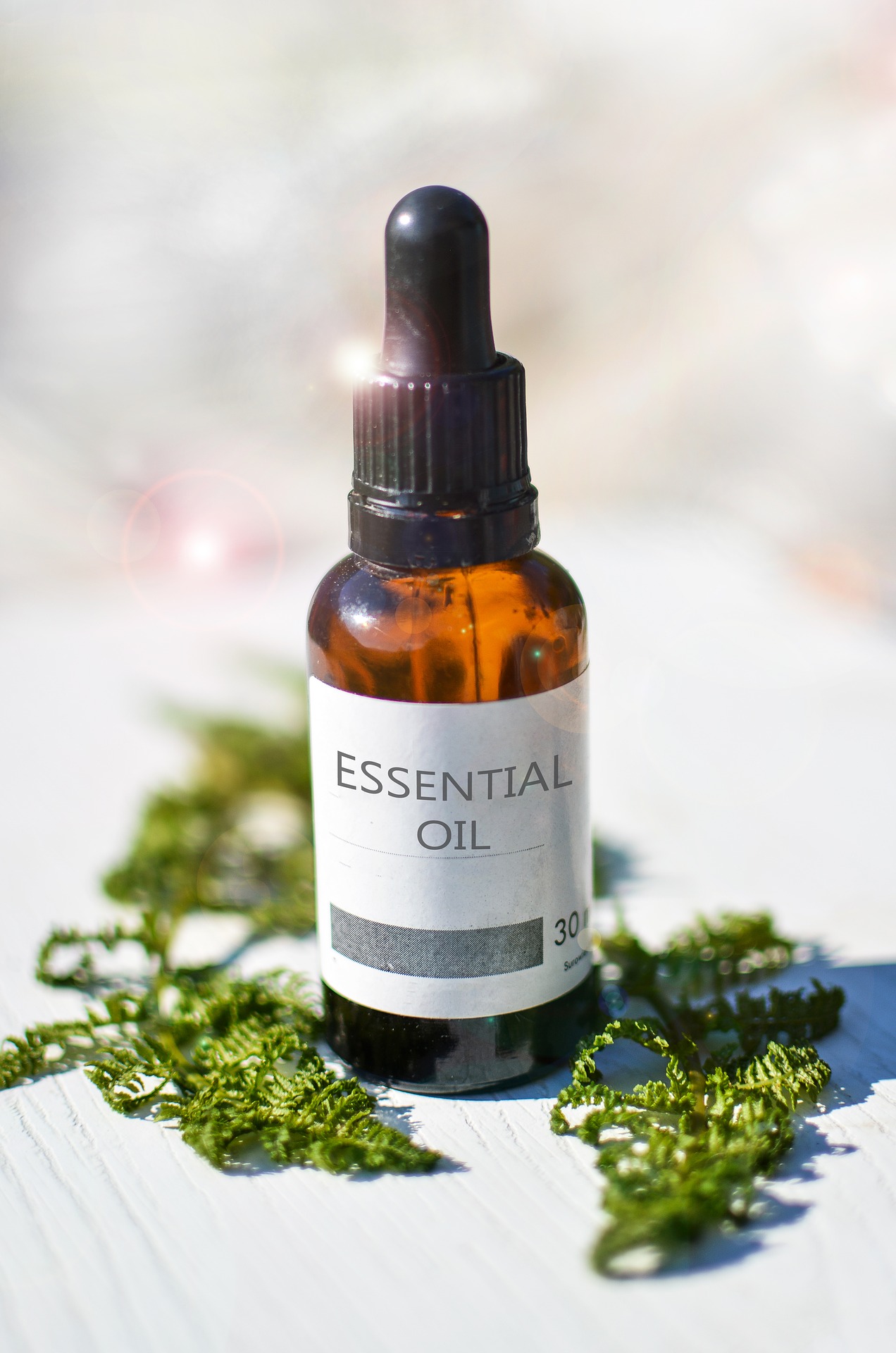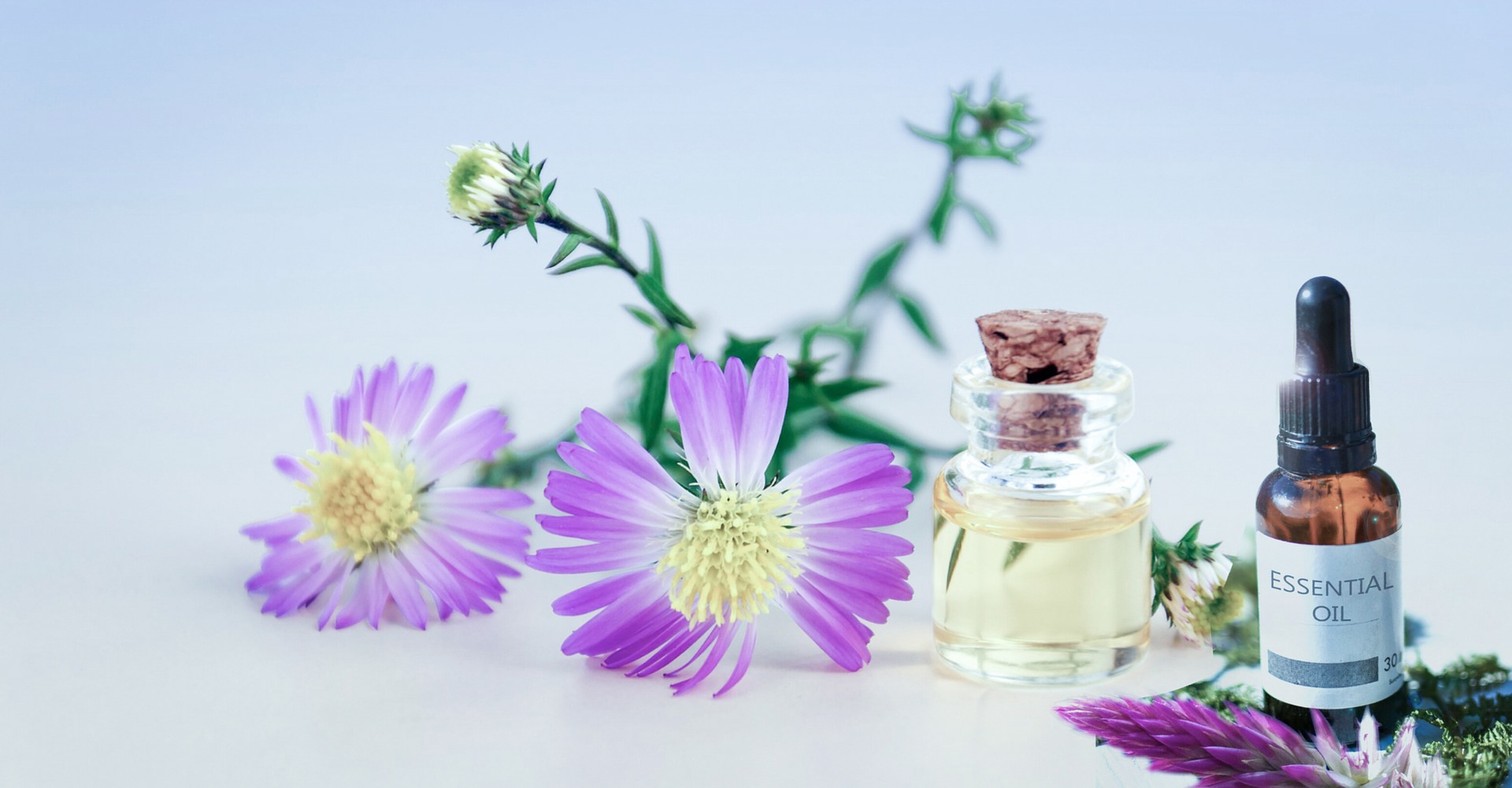Are Essential Oils For Skin Cancer Effective?
Some people may find essential oils helpful in relieving some of the negative effects of cancer and its treatment, such as anxiety and trouble sleeping. As a result, some individuals may ponder whether or not essential oils for skin cancer provide additional advantages for treating or maybe preventing cancer. The answer is 'No.' There is no evidence to support the use of essential oils to cure or prevent cancer in humans.
Author:Daniel JamesReviewer:Karan EmeryJan 01, 202310.3K Shares572.5K Views

Some people may find essential oils helpful in relieving some of the negative effects of cancer and its treatment, such as anxiety and trouble sleeping.
As a result, some individuals may ponder whether or not essential oils for skin cancerprovide additional advantages for treating or maybe preventing cancer.
The answer is 'No.'
There is no evidence to support the use of essential oils to cure or prevent cancer in humans.
However, many cancer patients find value in their applications in the relief of particular side effects.
While they might complement treatment, essential oils shouldn't replace traditional medication altogether.
Learn more about the advantages and hazards of utilizing essential oils for skin cancer treatment, as well as the science supporting its use in reducing side effects, here.
What Are Essential Oils?
Essential oils are highly concentrated liquid chemical extracts from flowers, plants, or trees.
By mixing them with other oils or lotions, you can massage essential oils into your skin or inhale them through a diffuser.
Concentrated plant extracts make up essential oils.
They are produced by steaming or pressing various plant components, including flowers, bark, leaves, or fruit.
The most popular application of essential oils is aromatherapy, which is the practice of enhancing one's sense of smell in order to improve one's physical, emotional, and spiritual well-being.
The origins of aromatherapy can be found in ancient Rome, Egypt, and more recently, France in the 20th century.
Some experts believe that essential oils are most effective by:
- absorbing into the tissues of your body
- stimulating your sense of smell to cause your body to react
Can Essential Oils Prevent Or Treat Cancer?
Studies have not established the ability of essential oils to treat or prevent cancer in humans.
You may have come across papers claiming that essential oils have "anti-cancer activity," however these studies were probably focused on the behavior of cancer cells in a petri dish or on cancer-affected mice.
For instance, the effects of frankincense essential oil on melanoma skin cancer were the focus of a study that was initially published in May 2019 in the medical journal Oncotarget.
When mice were transplanted with melanoma tumors, researchers discovered the oil slowed the tumors' growth.
Frankincense oil prevented the spread of breast cancer cells in the lab in a 2015 study published in the Asian Pacific Journal of Tropical Biomedicine.
In a 2013 case report on a single patient, published in OA Alternative Medicine, researchers reported their findings after utilizing topical frankincense oil to treat a man with basal cell carcinoma (BCC) lesions on his arm and chest.
Biopsies were taken before and after the oil was administered many times every day for 20 weeks.
As a result of the treatment, the malignant spots treated with frankincense oil reacted, and no adverse effects were found.
The BCC on the arm completely resolved following therapy, according to the authors' report, while the BCC on the chest significantly improved.
However, they did advise that a broader investigation be carried out.
In addition, there is a high degree of diversity in how essential oils are prepared, which reduces the possibility that another patient would have the same experience as this one.
Frankincense oil killed pancreatic cancer cells in the lab and in mouse pancreatic tumors, according to a 2012 study published in the journal BMC Complementary Alternative Medicine.
Other academic studies have validated the use of essential oils to manage nausea and vomiting that might occur during cancer therapy.
In some cancer patients, the oils may also enhance their quality of life and reduce anxiety.
Despite the fact that the results of these four studies seem to be promising in favor of the use of essential oils for skin cancer, it's important to keep in mind that the available evidence is limited and that the first study was conducted on inbred mice, the most widely used cancer model but one that is, regrettably, a poor indicator of what will work in humans.
Before this alternate strategy may be used as a treatment, more research with a broader human population is required.
It's crucial to keep in mind that findings from tests on lab-grown cells or on experimental animals do not necessarily indicate that the product will be successful in preventing or treating cancer in humans.
Could Essential Oils Help With Side Effects From Cancer And Its Treatment?
Many different physical and psychological side effects can result from cancer and its therapies.
Because they can assist cancer patients in managing the negative effects of both the recommended cancer treatments and the disease itself, essential oils for skin cancer are regarded as a complementary therapy to conventional medical treatments.
In order to lessen your negative effects, you might think about experimenting with complementary therapies like aromatherapy.
More specifically, aromatherapy may aid with nausea and vomiting as well as pain, sleep, anxiety, and tension.
It may also improve the quality of life.
For instance, a 2017 study published in Oncology Nursing Forumexamined the effects of diffusing lavender, peppermint, or chamomile essential oils at night on sleep quality against a placebo in 50 leukemia patients.
In contrast, aromatherapy was found to be effective in reducing a particular adverse effect, saliva production, in a small 2016 trial of patients receiving radioactive iodine treatment for thyroid cancer published by BioMed Research International.
Over a 2-week period, participants in the study inhaled either a ginger-lemon essential oil blend or water as a placebo. In terms of guarding against harm to their salivary glands, those who received the essential oils fared better.
Aromatherapy has also been linked to research that suggests it may help cure anxiety, but the data is scant.
However, a 2003 study in the Journal of Clinical Oncologyfound no benefit, however, adding essential oils to massage therapy appeared to help the participants' physical and psychological problems, according to a research of 103 persons from a 1999 study in Palliative Medicine.
Aromatherapy at home or for individual usage was not examined in any of the aforementioned trials, and there is a little study in this field.
Aromatherapy is already a sort of supportive treatment available at many large cancer hospitals, though.
More research where essential oils were found to be effective in reducing the number of side effects of cancer and its treatment are documented on the National Cancer Institute (NCI) website.
NCI notes that many studies lack adequate descriptions of the essential oils employed, which makes it challenging to compare studies or carry out more comprehensive analyses of the data.
There is a need for more extensive, comprehensive research on the effects of aromatherapy.
If you're considering utilizing essential oils for skin cancer, whether topically or in a diffuser, speaking with your medical team is an excellent first step.
Ask your medical team if aromatherapy could be used as a complementary therapy in order to address the adverse effects you are now experiencing.
Ask about the hazards associated with utilizing the specific aromatherapy that you are interested in testing.
Also, be on the lookout for unfavorable side effects from the essential oil product, like redness or irritation after you apply a skin lotion.
To ensure you won't experience a strong or unexpected reaction to the product, try a small amount by smell or on your skin first.
Essential Oils To Prevent Skin Cancer
There are more than 400 different essential oils available, and many of them are used in well-known cosmetics.
Among the most popular oils are:
- Marjoram
- Ginger
- Eucalyptus
- Chamomile
- Rosemary
- Lemon
- Peppermint
- Tea tree
- Lavender
- Frankincense
Essential Oils For Tumors And Cysts
Since essential oils are frequently gentler and safer for the skin than traditional solutions that contain harsh chemicals and irritants, they might be an outstanding treatment option for many cysts.
The mind-body connection can also be encouraged by essential oils.
Essential oils can offer a holistic experience and approach to treating skin ailments like cysts and underlying issues contributing to their formation by reducing stress, lowering negative thinking, and regulating hormones.
While essential oils can be useful at-home remedies for cyst treatment, it is always advisable to see a doctor if the cyst or cystic disease is unpleasant, painful, rapidly expanding, or infected.
Lavender Essential Oil
Natural anti-inflammatory oil that calms the skin is lavender essential oil.
The antibacterial qualities of lavender also reduce skin surface germs and guard against bacterial development, inflammation, and blemishes.
One of the greatest essential oils for stress-related acne is lavender.
Although inflammation, bacteria, and excessive oil production are the main causes of acne in almost all cases, stress is also thought to be a common acne trigger.
In order to manage stress hormones like cortisol, which have been related to inflammation and acne, a lavender essential oil can also be utilized for its aromatherapy advantages.
Tea Tree Essential Oil
Tea tree essential oil is frequently used to treat acne because it helps reduce excessive oil production, destroy acne-causing bacteria, and reduce inflammation.
When treating cystic acne, the oil's capacity to reduce inflammation and combat pore-clogging bacteria is crucial.
Geranium Essential Oil
Popular essential oils for decreasing inflammation include geranium.
Geranium oil can lessen the growth and spread of bacteria as well as the discomfort and swelling associated with cystic acne.
Frankincense Essential Oil
Cysts can be effectively treated with frankincense essential oil.
Given that it has been demonstrated to have anti-inflammatory, antibacterial, and anticancer properties, it might function remarkably effectively on breast tissue and cysts.
According to a 2017 study, frankincense essential oil is an effective therapeutic agent for halting breast cancer tumor growth.
However, this was only tested on laboratory mice.
To encourage lymphatic drainage and prevent the growth of breast cysts, frankincense is an excellent oil to use when massaging the breasts.
What Are The Risks Of Using Essential Oils?
Even though these essential oils for skin cancer come from natural sources, some individuals are startled to hear that they can still irritate or trigger allergic reactions in some people, especially those with delicate or damaged skin.
Particularly some citrus essential oils may react to sunlight.
When utilizing a room diffuser, some people have suffered coughing or other respiratory issues.
Stop using the product right once if a response or irritation happens.
Never use undiluted essential oils for skin cancerdirectly on your skin, and keep them out of your eyes.
You, the consumer, must determine whether the product you are purchasing is reliable and trustworthy because essential oils are not subject to regulation by the U.S. Food and Drug Administrationunless they make claims to treat, prevent, or mitigate disease.
You can purchase essential oils that have been certified as organic by the United States Department of Agriculture (USDA) or by the Non-GMO Project, indicating that the manufacturer followed a set of high standards in producing the oil.
Warnings About Essential Oils
If you have skin cancer and are considering using essential oils for skin cancer, let your doctor know.
It's vital to let your healthcare professional know what oils you're using because some of them may interact with specific diseases, medications, or treatments.
Applying essential oils to your skin should be done with prudence. Never use it on a broken, inflammatory, or painful region.
Before applying the oil to the skin, always dilute it with a carrier oil or lotion.
Among the potential negative consequences are the following:
- skin reaction
- allergic reaction
- respiratory issues or a worsening of asthma
- greater sensitivity to the sun (if applied before sun exposure)
- an unpleasant odor
- only topical or inhalation application of essential oils is recommended
- never put the oil in your mouth or put it inside your eyes, ears, nose, anus, or vagina.
People Also Ask
Can Essential Oils Get Rid Of Cancer?
There is no strong scientific evidence to support the use of essential oils to cure or prevent cancer in humans. There are studies that have prevented the cancer cells in laboratory mice, but that do not indicate anything when use in humans.
Can Frankincense Be Used For Skin Cancer?
In a 2013 study, results showed that the frankincense oil treatment had an effect on the cancerous areas, and no negative side effects were found. According to the authors' findings, "Pathological study demonstrated total resolution of the BCC on the arm and substantial resolution in the BCC of the chest after treatment."
How Do You Clear Up Skin Cancer?
Early detection and treatment are the keys to curing all skin cancers. Radiation, chemotherapy, cryotherapy, Mohs surgery, and excision are all forms of treatment. Examine your skin for any changes to skin growths' size, color, or shape. Visit your dermatologist once a year for a thorough skin examination.
Conclusion
There isn't really any conclusive proof to date that essential oils for skin cancer are useful at preventing skin cancer.
If you have skin cancer and wish to use essential oil to reduce the stress related to the diagnosis and treatment, talk to your doctor first.
Essential oils should not be used in place of regular medical care, however.

Daniel James
Author
Daniel James is a distinguished gerontologist, author, and professional coach known for his expertise in health and aging.
With degrees from Georgia Tech and UCLA, including a diploma in gerontology from the University of Boston, Daniel brings over 15 years of experience to his work.
His credentials also include a Professional Coaching Certification, enhancing his credibility in personal development and well-being.
In his free time, Daniel is an avid runner and tennis player, passionate about fitness, wellness, and staying active.
His commitment to improving lives through health education and coaching reflects his passion and dedication in both professional and personal endeavors.

Karan Emery
Reviewer
Karan Emery, an accomplished researcher and leader in health sciences, biotechnology, and pharmaceuticals, brings over two decades of experience to the table. Holding a Ph.D. in Pharmaceutical Sciences from Stanford University, Karan's credentials underscore her authority in the field.
With a track record of groundbreaking research and numerous peer-reviewed publications in prestigious journals, Karan's expertise is widely recognized in the scientific community.
Her writing style is characterized by its clarity and meticulous attention to detail, making complex scientific concepts accessible to a broad audience. Apart from her professional endeavors, Karan enjoys cooking, learning about different cultures and languages, watching documentaries, and visiting historical landmarks.
Committed to advancing knowledge and improving health outcomes, Karan Emery continues to make significant contributions to the fields of health, biotechnology, and pharmaceuticals.
Latest Articles
Popular Articles

